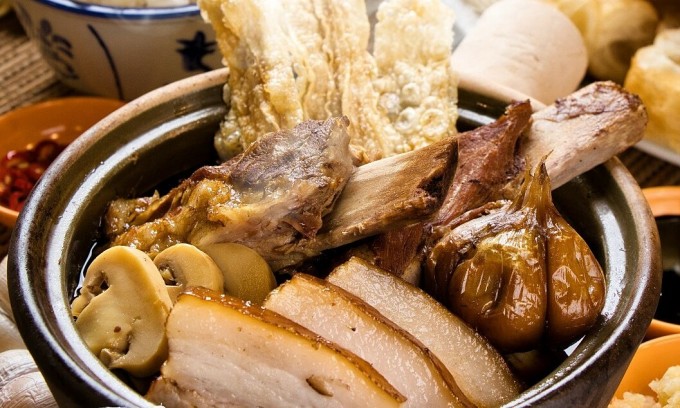[ad_1]
Bak kut teh, a preferred meat and pork rib dish cooked in a broth flavored with varied Chinese language medicinal herbs, was added to a rising listing of the nation’s heritage meals on Feb. 23 in a authorities gazette, together with 9 different dishes, the Straits Occasions reported.
Nonetheless, netizens in Malaysia the place pork-abstaining Muslims make up greater than 60% of the inhabitants have questioned whether or not the dish deserves nationwide recognition, claiming a nationwide heritage dish should be capable to be consumed by all races and religions.
“Ought to a pork-based soup contend as a heritage dish in a Muslim-majority nation?” one netizen requested.
An consumer on X, previously referred to as Twitter, known as it a “controversial alternative” and stated that bak kut teh should not be thought-about a nationwide heritage dish if half the inhabitants cannot eat it.
In accordance with Malaysian information publication The Star, opposition member of parliament Rosol Wahid additionally raised issues in regards to the likelihood of the transfer “[touching] on spiritual sensitivities.”
He urged the Tourism, Arts and Tradition Ministry to clarify the choice.
The United Malays Nationwide Organisation’s youth chief, Muhammad Akmal Saleh additionally expressed his outrage in a Fb publish, accusing Minister of Tourism, Arts and Tradition Tiong King Sing of not contemplating “the sensitivity of the Malaysian folks.
“It was higher to acknowledge different cultural dishes that may be eaten by all residents of Malaysia, no matter race or faith. As an illustration, Chinese language fried rice,” Muhammad added.
Nonetheless, some netizens supported the selection of bak kut teh, saying because the dish was created in Malaysia, it positively ought to be a part of the nation’s heritage.
One other argued that bak kut teh is effectively liked by overseas vacationers who flock to Malaysia to attempt it.
It’s extensively believed that bak kut teh was dropped at Malaysia, particularly to the realm of Klang, by early immigrants from China’s Fujian Province.
Over half of Malaysia’s inhabitants follows the Islamic religion, which prohibits the consumption of pork.



